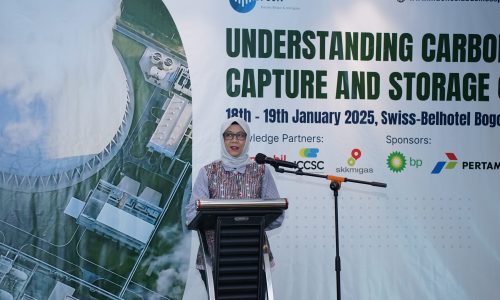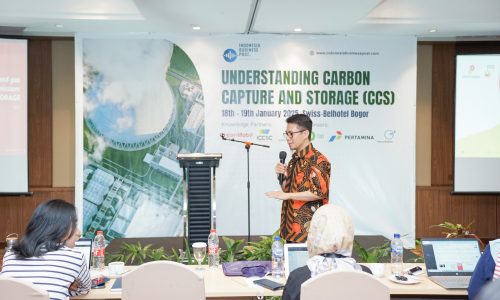The implementation of the carbon exchange in September 2023 will experience a number of challenges that must be corrected in terms of regulation and supervision.
Pius Ginting, Coordinator of Action for Ecology and People’s Emancipation (AEER) said that currently there is no regulation requiring companies to disclose the amount of carbon emissions they produced.
So far, data on the amount of carbon emissions generated by companies and the PLTUs cannot be accessed by the public, so it is very difficult to estimate the amount of carbon that must be compensated by each respective company.
“Companies have the potential to prefer buying carbon compared to building green projects such as renewable energy power plants,” Pius said on July 21, 2023.
In his opinion, carbon trading must be carried out in conjunction with other climate actions such as carbon taxes, green portfolio enhancement, and energy transition to renewable energy.
He also hoped that the government will push carbon trading regulations. The government should also focus on accelerating the implementation of carbon taxes.
Comparing to Singapore’s carbon tax
Pius compared Indonesia’s current condition to Singapore, which has implemented a carbon tax since 2019. In Singapore, the tax is planned to be increased periodically until 2030. Through the implementation of carbon tax, Singapore has managed to generate S$ 1 billion (IDR 14 trillion) in revenue, which later utilized for various decarbonization programs and green economy transition.
According to available data, Indonesia’s carbon economic potential for tropical rain reaches IDR 1.78 trillion, mangrove forests reach IDR 2.333 trillion, and peatlands reach IDR 3.888 trillion.
Previously, the Financial Services Authority (OJK) and the Ministry of Environment and Forestry (KLHK) had agreed on a memorandum of understanding on expanding cooperation in the field of sustainable finance for carbon exchanges.
Later, this memorandum of understanding will become the legal basis for the exchange and use of carbon trading data through the National Registry System for Climate Change Control (SRN-PPI).
In this memorandum of understanding agreed on five points of cooperation, namely:
- Harmonization between policies in the Financial Services Sector with policies in the field of environmental protection and management;
- Increasing the capacity of Human Resources in the Environment and Forestry sector and the Financial Services Sector;
- Providing, exchanging, utilizing data and/or information to support the duties and functions of OJK and KLHK;
- Research and/or surveys in the context of formulating policies and development in the field of Environment and Forestry and the Financial Services Sector in the field of sustainable finance related to the implementation of Carbon Economic Values;
- Provision of Experts/Resources in the Environment and Forestry and the Financial Services Sector.









